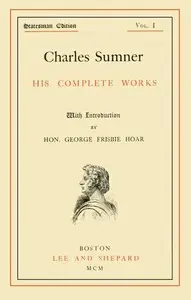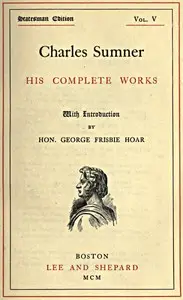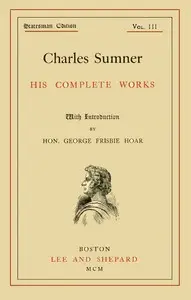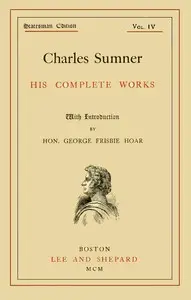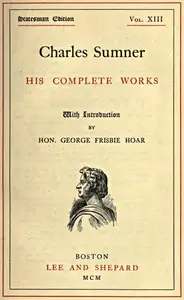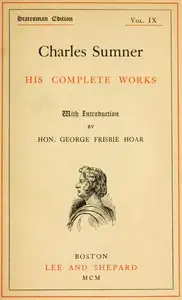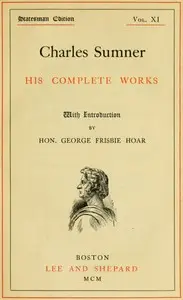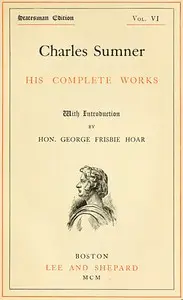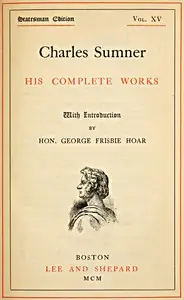"Charles Sumner: his complete works, volume 02 (of 20)" by Charles Sumner is a compilation of powerful speeches and writings from the 1800s that boldly confronts the issue of slavery. The collection zeroes in on the cruel experiences of both white individuals enslaved in North Africa and black individuals enslaved domestically. The volume opens with a detailed lecture, "White Slavery in the Barbary States," which carefully examines the history and ethics of slavery, arguing it comes from violence and not from any sense of justice. By drawing parallels between different forms of slavery, the author shines a light on the universal fight for basic human rights, promoting ideals of freedom and fairness.
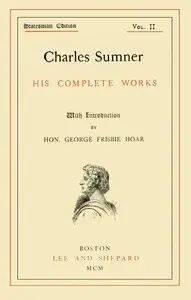
Charles Sumner: his complete works, volume 02 (of 20)
By Charles Sumner
Vivid orations from the past expose the brutal realities of human bondage, connecting the suffering of those enslaved in different lands to ignite a fight for freedom.
Summary
About the AuthorCharles Sumner was an American lawyer, politician, and statesman who represented Massachusetts in the United States Senate from 1851 until his death in 1874. Before and during the American Civil War, he was a leading American advocate for the abolition of slavery. He chaired the Senate Foreign Relations Committee from 1861 to 1871, until he lost the position following a dispute with President Ulysses S. Grant over the attempted annexation of Santo Domingo. After breaking with Grant, he joined the Liberal Republican Party, spending his final two years in the Senate alienated from his party. Sumner had a controversial and divisive legacy for many years after his death, but in recent decades, his historical reputation has improved in recognition of his early support for racial equality.
Charles Sumner was an American lawyer, politician, and statesman who represented Massachusetts in the United States Senate from 1851 until his death in 1874. Before and during the American Civil War, he was a leading American advocate for the abolition of slavery. He chaired the Senate Foreign Relations Committee from 1861 to 1871, until he lost the position following a dispute with President Ulysses S. Grant over the attempted annexation of Santo Domingo. After breaking with Grant, he joined the Liberal Republican Party, spending his final two years in the Senate alienated from his party. Sumner had a controversial and divisive legacy for many years after his death, but in recent decades, his historical reputation has improved in recognition of his early support for racial equality.

